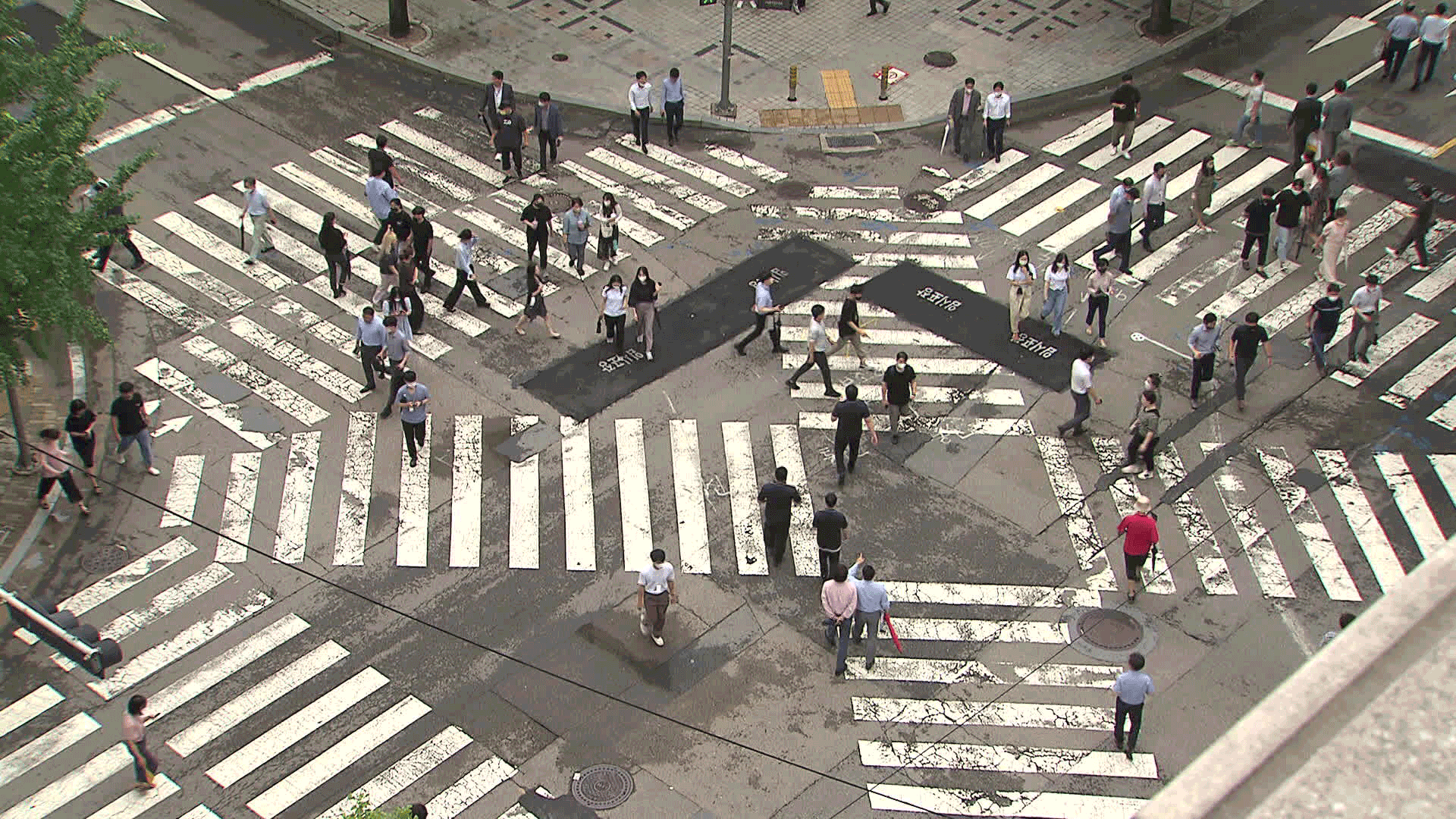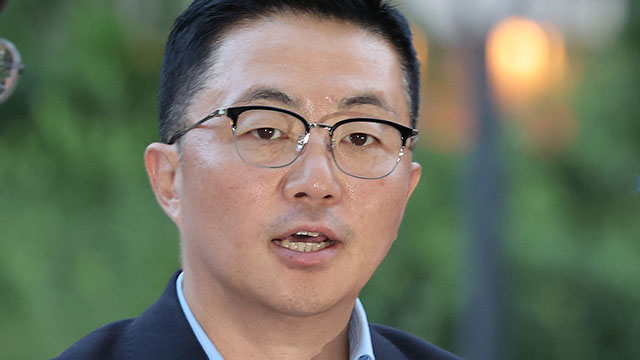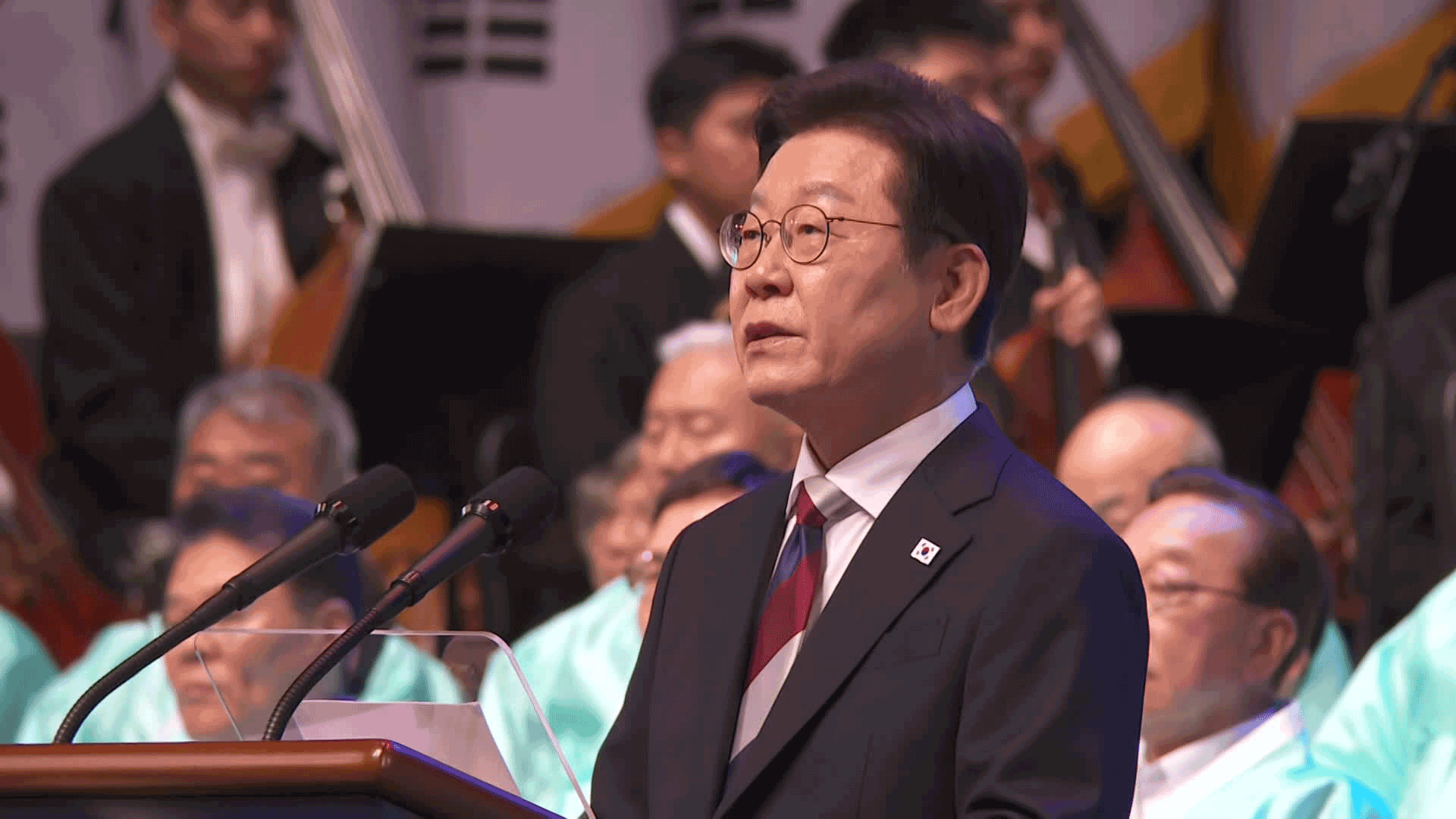Public opinion on S. Korea, Japan ties
입력 2025.08.16 (00:22)
읽어주기 기능은 크롬기반의
브라우저에서만 사용하실 수 있습니다.
[Anchor]
Now, 80 years after liberation, we looked into how our citizens perceive Korea-Japan relations.
The majority believe that Japan's reflection is insufficient, and the level of favorable responses was around half.
We begin with a report from KBS reporter Jang Hyuk-jin on the results of the public opinion survey.
[Report]
During President Lee Jae Myung's first diplomatic stage, the leaders of Korea and Japan confirmed their commitment to "shuttle diplomacy," regularly visiting each other's countries.
With a second meeting scheduled for next week, both countries, marking the 80th anniversary of liberation, stand at a new turning point.
[President Lee Jae Myung: "We are in a relationship that cannot be separated, like neighbors sharing a front yard."]
What is the perception of our citizens towards Japan, a country that is both close and distant?
The response of "favorable" was 52%, while "unfavorable" was 45%.
Among those under 20, about 7 out of 10 responded positively, but in the 50s and 60s, only 4 out of 10 expressed a favorable view.
Among conservatives, 64% responded positively, while among progressives, the unfavorable response was higher at 53%.
Regarding the current Korea-Japan relations, 50% said they are "good," while 43% said they are "bad."
By age group, those in their 30s and those with a centrist political stance had a higher perception of "good."
We also asked about ongoing historical issues, such as the disruption of the Sado Mine memorial service and the distortion of history textbooks.
When asked if Japan's apologies and reflections are sufficient, 8 out of 10 responded that they are not at all or not very sufficient.
Even among the relatively pro-Japan youth and conservative groups, 3 out of 4 and 2 out of 3, respectively, said they are "not sufficient."
The most common reason given was that Japan continues to distort its history of invasion, followed by unresolved issues regarding comfort women and forced labor, and claims over Dokdo.
However, those over 70 viewed the claims over Dokdo as the biggest issue, while those in their 20s rated the unresolved comfort women issue as the most significant problem, showing a generational gap in perception.
This is Jang Hyuk-jin from KBS News.
Now, 80 years after liberation, we looked into how our citizens perceive Korea-Japan relations.
The majority believe that Japan's reflection is insufficient, and the level of favorable responses was around half.
We begin with a report from KBS reporter Jang Hyuk-jin on the results of the public opinion survey.
[Report]
During President Lee Jae Myung's first diplomatic stage, the leaders of Korea and Japan confirmed their commitment to "shuttle diplomacy," regularly visiting each other's countries.
With a second meeting scheduled for next week, both countries, marking the 80th anniversary of liberation, stand at a new turning point.
[President Lee Jae Myung: "We are in a relationship that cannot be separated, like neighbors sharing a front yard."]
What is the perception of our citizens towards Japan, a country that is both close and distant?
The response of "favorable" was 52%, while "unfavorable" was 45%.
Among those under 20, about 7 out of 10 responded positively, but in the 50s and 60s, only 4 out of 10 expressed a favorable view.
Among conservatives, 64% responded positively, while among progressives, the unfavorable response was higher at 53%.
Regarding the current Korea-Japan relations, 50% said they are "good," while 43% said they are "bad."
By age group, those in their 30s and those with a centrist political stance had a higher perception of "good."
We also asked about ongoing historical issues, such as the disruption of the Sado Mine memorial service and the distortion of history textbooks.
When asked if Japan's apologies and reflections are sufficient, 8 out of 10 responded that they are not at all or not very sufficient.
Even among the relatively pro-Japan youth and conservative groups, 3 out of 4 and 2 out of 3, respectively, said they are "not sufficient."
The most common reason given was that Japan continues to distort its history of invasion, followed by unresolved issues regarding comfort women and forced labor, and claims over Dokdo.
However, those over 70 viewed the claims over Dokdo as the biggest issue, while those in their 20s rated the unresolved comfort women issue as the most significant problem, showing a generational gap in perception.
This is Jang Hyuk-jin from KBS News.
■ 제보하기
▷ 카카오톡 : 'KBS제보' 검색, 채널 추가
▷ 전화 : 02-781-1234, 4444
▷ 이메일 : kbs1234@kbs.co.kr
▷ 유튜브, 네이버, 카카오에서도 KBS뉴스를 구독해주세요!
- Public opinion on S. Korea, Japan ties
-
- 입력 2025-08-16 00:22:59

[Anchor]
Now, 80 years after liberation, we looked into how our citizens perceive Korea-Japan relations.
The majority believe that Japan's reflection is insufficient, and the level of favorable responses was around half.
We begin with a report from KBS reporter Jang Hyuk-jin on the results of the public opinion survey.
[Report]
During President Lee Jae Myung's first diplomatic stage, the leaders of Korea and Japan confirmed their commitment to "shuttle diplomacy," regularly visiting each other's countries.
With a second meeting scheduled for next week, both countries, marking the 80th anniversary of liberation, stand at a new turning point.
[President Lee Jae Myung: "We are in a relationship that cannot be separated, like neighbors sharing a front yard."]
What is the perception of our citizens towards Japan, a country that is both close and distant?
The response of "favorable" was 52%, while "unfavorable" was 45%.
Among those under 20, about 7 out of 10 responded positively, but in the 50s and 60s, only 4 out of 10 expressed a favorable view.
Among conservatives, 64% responded positively, while among progressives, the unfavorable response was higher at 53%.
Regarding the current Korea-Japan relations, 50% said they are "good," while 43% said they are "bad."
By age group, those in their 30s and those with a centrist political stance had a higher perception of "good."
We also asked about ongoing historical issues, such as the disruption of the Sado Mine memorial service and the distortion of history textbooks.
When asked if Japan's apologies and reflections are sufficient, 8 out of 10 responded that they are not at all or not very sufficient.
Even among the relatively pro-Japan youth and conservative groups, 3 out of 4 and 2 out of 3, respectively, said they are "not sufficient."
The most common reason given was that Japan continues to distort its history of invasion, followed by unresolved issues regarding comfort women and forced labor, and claims over Dokdo.
However, those over 70 viewed the claims over Dokdo as the biggest issue, while those in their 20s rated the unresolved comfort women issue as the most significant problem, showing a generational gap in perception.
This is Jang Hyuk-jin from KBS News.
Now, 80 years after liberation, we looked into how our citizens perceive Korea-Japan relations.
The majority believe that Japan's reflection is insufficient, and the level of favorable responses was around half.
We begin with a report from KBS reporter Jang Hyuk-jin on the results of the public opinion survey.
[Report]
During President Lee Jae Myung's first diplomatic stage, the leaders of Korea and Japan confirmed their commitment to "shuttle diplomacy," regularly visiting each other's countries.
With a second meeting scheduled for next week, both countries, marking the 80th anniversary of liberation, stand at a new turning point.
[President Lee Jae Myung: "We are in a relationship that cannot be separated, like neighbors sharing a front yard."]
What is the perception of our citizens towards Japan, a country that is both close and distant?
The response of "favorable" was 52%, while "unfavorable" was 45%.
Among those under 20, about 7 out of 10 responded positively, but in the 50s and 60s, only 4 out of 10 expressed a favorable view.
Among conservatives, 64% responded positively, while among progressives, the unfavorable response was higher at 53%.
Regarding the current Korea-Japan relations, 50% said they are "good," while 43% said they are "bad."
By age group, those in their 30s and those with a centrist political stance had a higher perception of "good."
We also asked about ongoing historical issues, such as the disruption of the Sado Mine memorial service and the distortion of history textbooks.
When asked if Japan's apologies and reflections are sufficient, 8 out of 10 responded that they are not at all or not very sufficient.
Even among the relatively pro-Japan youth and conservative groups, 3 out of 4 and 2 out of 3, respectively, said they are "not sufficient."
The most common reason given was that Japan continues to distort its history of invasion, followed by unresolved issues regarding comfort women and forced labor, and claims over Dokdo.
However, those over 70 viewed the claims over Dokdo as the biggest issue, while those in their 20s rated the unresolved comfort women issue as the most significant problem, showing a generational gap in perception.
This is Jang Hyuk-jin from KBS News.
-
-

장혁진 기자 analogue@kbs.co.kr
장혁진 기자의 기사 모음
-
이 기사가 좋으셨다면
-
좋아요
0
-
응원해요
0
-
후속 원해요
0











![[한일여론조사] “일본에 호감” 52%…“과거사 반성 부족” 80%](/data/layer/904/2025/08/20250815_4pdsE0.png)



이 기사에 대한 의견을 남겨주세요.